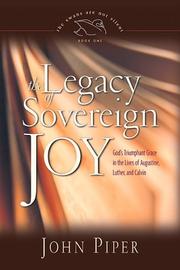This was posted by Dr. Jim Hamilton Jr. at his blog
For His Renown awhile ago and it is worth reading and re-reading, especially if you have kids in sport!
Here’s the guest post I was invited to contribute to the
Family Ministry Today blog:
I love basketball and baseball. I love leaving it all on the court. I love the exhilaration of teamwork, the ball off the sweet spot, the basketball whispering through the net, the discipline to play defense, after-practice ground balls (or free throws), staying in the hitting cage until the hands bleed or the coach can’t throw anymore or the daylight is gone. And I love to win.
These things aren’t on the surface for me. They’re in me bone deep because they’re all wound up with my relationship with my dad. Growing up, my dad was my hero. He was also the high school basketball coach, and I think he worked (and works) harder than anyone else I know. My dad loved me and made sacrifices for me, and I wanted to please him. The best way to do that, I thought, was to lead the team my dad coached to the state championship. At some point, I think 8
th grade, I promised I would do it: I told my dad that we would face Corliss Williamson’s Russellville Cyclones in the State Championship, and that we would win.
I failed. We weren’t even close. We didn’t even get to play in the state tournament my senior year. My mom was a great comfort in those days, and she had long been planting seeds, saying things like “basketball isn’t everything.” One day those seeds would bear fruit.
I’m sad to say that along the way I adopted an “anything-to-win” mindset. Thankfully, there were lines that I couldn’t cross, lines that have been obliterated at every level in recent years. Lines that only need the name Barry Bonds mentioned for you to know what I’m talking about.
I failed my dad, but even in failing to win that state championship, he knew I loved him. I said it with words. He heard it more clearly spoken by all those summer days in the gym doing dribble drills, shooting more shots than I could count (counting a bunch of them trying to track shooting percentage—I had this big chart on the wall in my room), running the stairs, working out in strength shoes, doing everything I possibly could to improve. I’d seen my dad work, and I did my best to follow in his footsteps.
One afternoon the summer before last my sons and I were playing wiffle-ball in the backyard with the kid who lives next door. Something happened that triggered a realization in my mind. Seeds planted by my mother, watered by the word of God, suddenly sprouted, pushing up through the soil of my thinking. I don’t remember if the game had ended and my son was on the losing side or if it was just a tight play that went against him, but he threw a fit like the world had ended and all was lost. I recognized the sentiments and the behavior, and I could tell you worse stories about my own actions when I was 15 not 5, things that took place in settings more significant than the backyard. Suddenly I knew, I think for the first time, what my behavior had implied, and what my son’s showed in that moment.
All at once I realized that the antics were announcing that the most important thing in the world was performance and the outcome of this silly game. As I took my son in my arms that afternoon, a phrase came to my lips that expressed something I should have known long before: it’s more important to honor God than to win.
If athletics are going to be anything other than a training ground for thuggery, athletes have to know that it’s more important to honor God than to win. For kids to accept the bodies they’ve been given and refuse performance-enhancing drugs, they have to know that it’s more important to honor God than to win. For us to be able to honor our opponents whether we win or lose, we have to know that it’s more important to honor God than to win. For sports and competition to bring out the best—rather than the worst—in us, we have to go at it like it’s more important to honor God than to win.
It’s more important to honor God than to win. If I love my dad by giving it all I’ve got, but I dishonor God along the way, all I’m left with is an emotional connection to idolatry—and the idol of sports and the relationships associated with it will let us down every time. But if I seek to honor my father and mother because I’m seeking to honor God, the emotional connection is not empty and hollow but solid and everlasting in its shared experience of the two great commandments. We love God by loving people, by playing hard, by soaking ourselves with sweat and disregarding screaming lungs and skinned knees and reaching, striving, straining, winning or losing, for the praise of the one who is worthy.
The great goal of competition is not, therefore, victory. No, victory must be redefined as winning or losing (with all our might) in a way that honors God, because it’s better to honor God than to win.
 Not all questions are good questions. And despite what your grade school teacher may have told you, there are stupid questions. And there are also ungodly questions which undermine God's church. We have seen in recent years how certain leader's questions, when they are continually posed and systematically asked, are not really questions at all but are statements about what that leader thinks about a topic. To emphasize this, Scott Oliphint, in his book entitled The Battle Belongs to the Lord, discusses the serpent's questioning of Eve and the resultant truth for the church:
Not all questions are good questions. And despite what your grade school teacher may have told you, there are stupid questions. And there are also ungodly questions which undermine God's church. We have seen in recent years how certain leader's questions, when they are continually posed and systematically asked, are not really questions at all but are statements about what that leader thinks about a topic. To emphasize this, Scott Oliphint, in his book entitled The Battle Belongs to the Lord, discusses the serpent's questioning of Eve and the resultant truth for the church:












